Student perspectives on the future of leisure

Several Leisure & Events students give their views on the future of leisure. T They tell why they chose this study, which trends inspire them, the biggest challenges for leisure and their role in it.
Who are you and what programme do you study? Why did you choose Leisure & Event Management?
My name is Guus van der Wolk and I am currently graduating in Leisure and Events Management (LEM) at the Willem de Kooning Academy in Rotterdam. I chose this study programme four years ago because I knew I am good at coming up with ideas and developing them in a broad spectrum. LEM offers a broad field of work, so that’s how I ended up here.
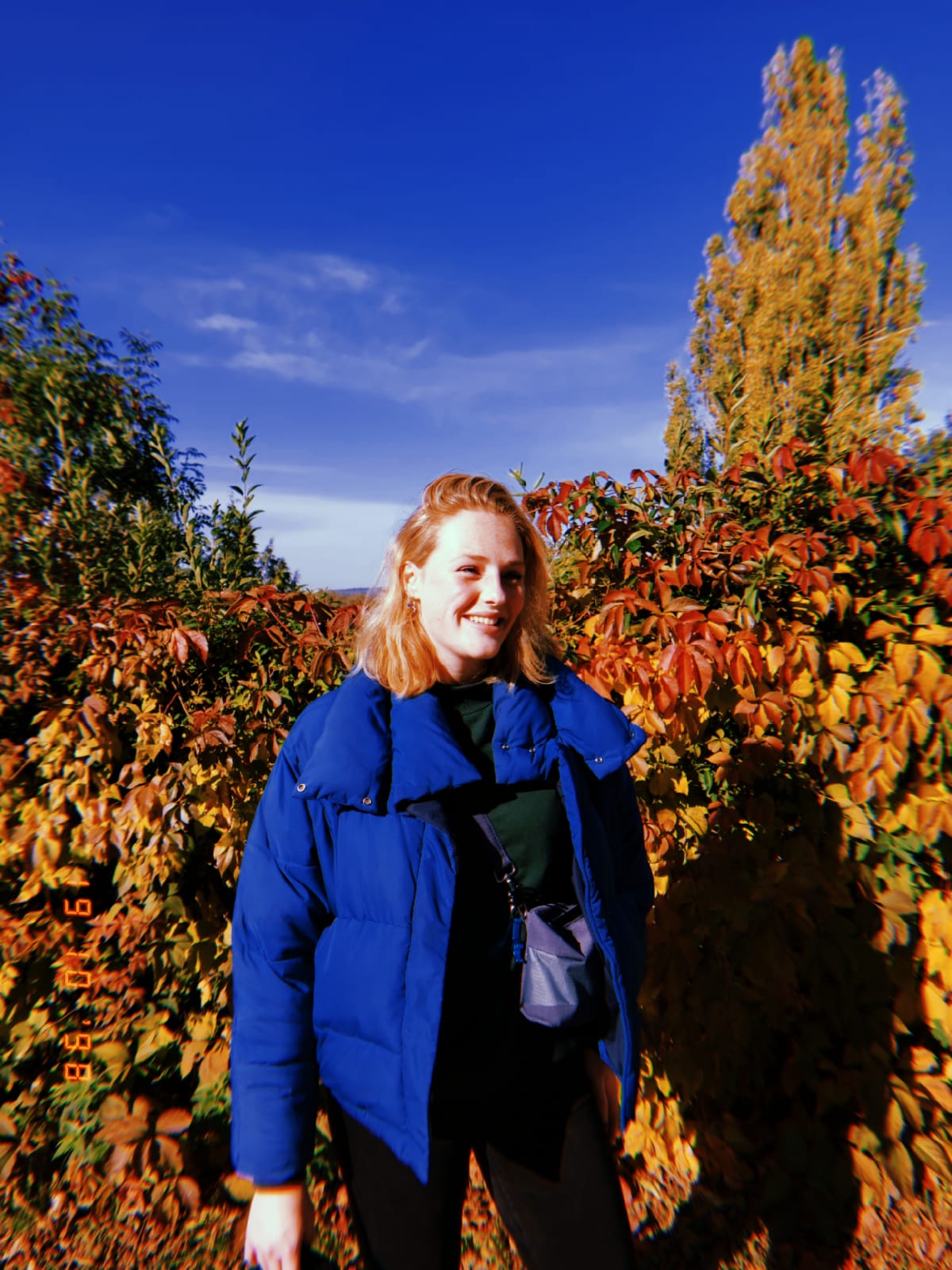
What trend or development inspires you and how do you want to work on that?
My interests are currently in healthcare and education; what is happening there, but more importantly, what is not happening there yet? And what are the opportunities in healthcare and education from the perspective of leisure. For example, gamification is a trend that is very interesting in this area; how can you make learning or medical rehabilitation more fun by adding a gaming element.
And your avatar? What will it do in 2040 in this trend in terms of leisure?
My avatar in 2040 works in a place where I can connect people and solve problems with creative, playful solutions. I work in a horizontal team with a very positive atmosphere where almost anything is possible. Thinking inside the box is the new smoking; you are only allowed to think outside the box!
Who are you and what is your study programme? Why did you choose Leisure & Events Management?
My name is Tijn Geurts, at the time of writing I am a third-year student of Leisure & Events Management at NHL Stenden. I am in this programme because I really enjoy making others happy, something you get to do this in this industry.
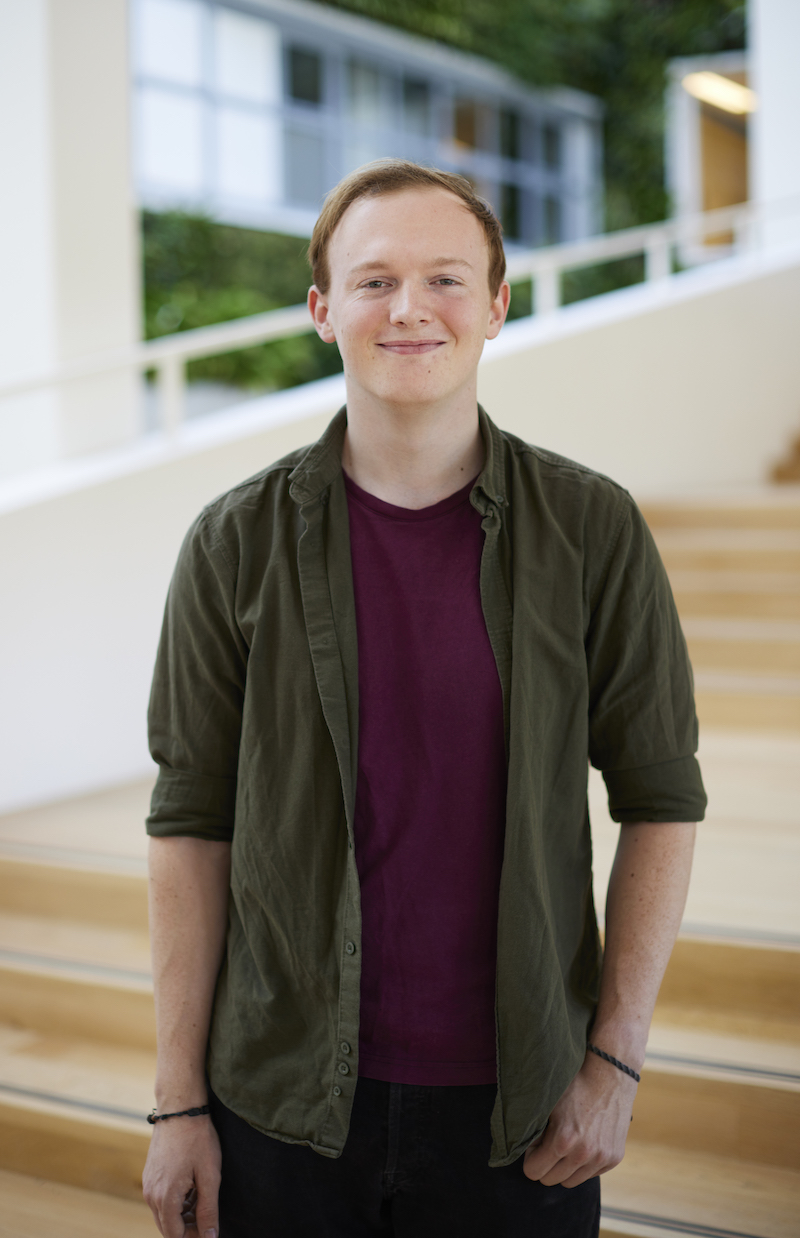
What do you see as the biggest challenge facing the leisure industry?
My expectation is that there is a great challenge ahead in supply and demand. During the Covid period, it became very clear that people very much like doing something in their spare time. Nowadays, more people also know better what they enjoy doing, which is why I expect demand to rise sharply and supply to struggle to keep up.
Which role in the leisure industry do you see as contributing to a future solution?
Personally, I see a lot of opportunities in the (outdoor) sports sector. Community health is becoming increasingly important to each individual, this is often sought in sports and outdoor activities. Coincidentally, that is also where my interests lie at the moment. So, it would be nice if I could play my part there as a provider in the future.
Who are you and what specialisation do you study? Why did you choose this domain?
I am Pascalle van Dorst and I am doing the Master of Science Leisure and Tourism Studies at Breda University of Applied Sciences. I previously did a bachelor’s in communication in the leisure industry and I thought that this master’s might possibly add to that. I was also very interested in the multicultural environment of the school and the very diverse programme.
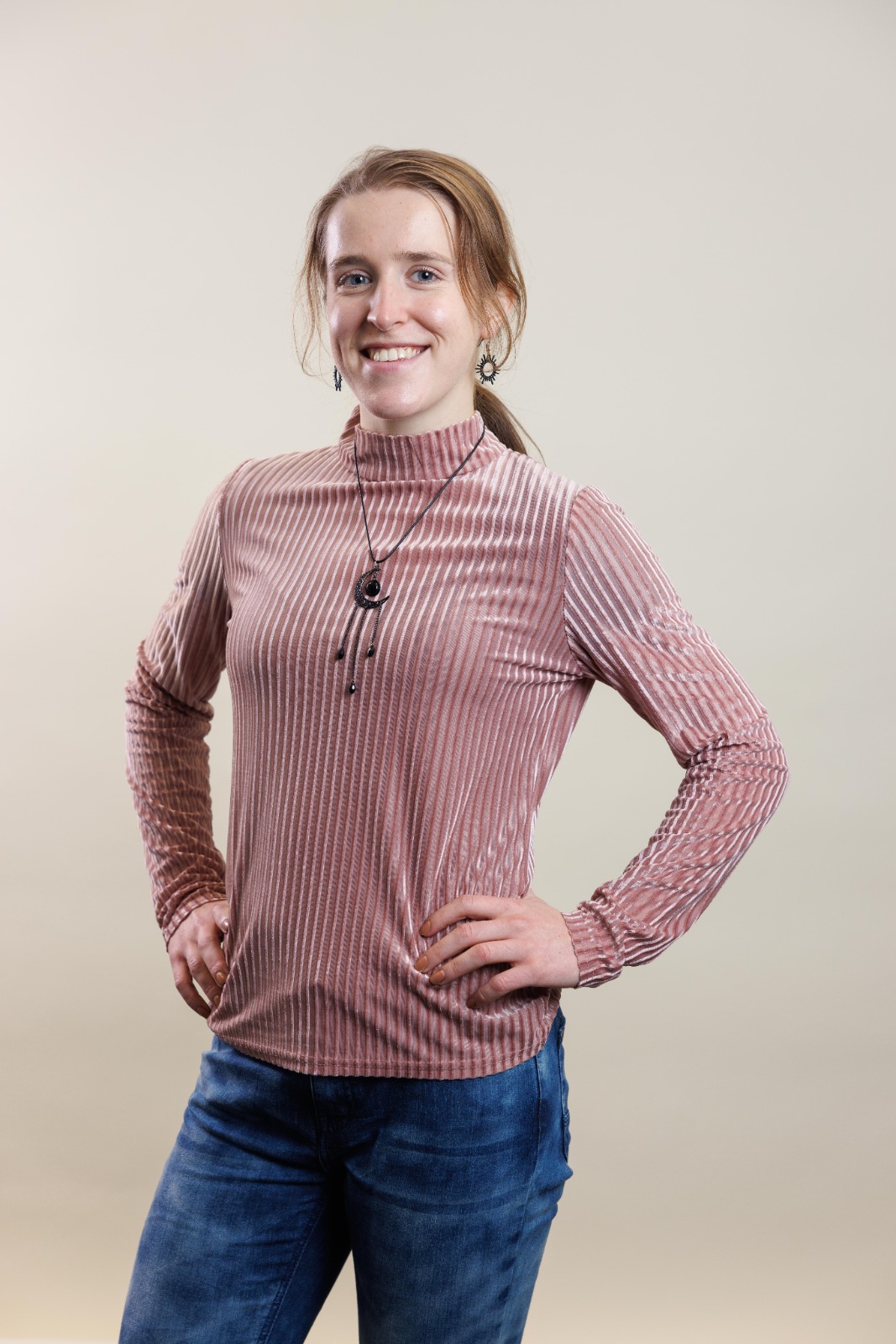
What trend or development inspires you and how do you want to work on that?
I am interested in the continuing growth of the experience economy. The product or service is not the main focus anymore. I think that storytelling and listening to the consumer can help create continuously evolving experiences that are not only memorable, but also moving and maybe even life-changing. Alternative technologies like AI and VR can make experiences more inclusive and I am more than curious to see what other techniques the future brings.
And your avatar? What will it do in 2040 in this trend in terms of leisure?
What I personally hope to add to the future of Leisure and Events is a fresh pair of eyes and an endless curiosity towards others. I believe that we can only improve the industry by listening, not only to consumers but also to others in and around the leisure and event industry. By working together, new inventions can be made, talents can be optimised and we can all, in general, be prouder and happier.
Who are you and what programme do you study? Why did you choose Leisure & Events Management?
I am Loreen Brink, 21 years old and living in Amsterdam. I am now at the end of my second year of Leisure and Event Management at Inholland Diemen University of Applied Sciences. This study programme appealed to me because I enjoy conceiving and organising events. The study programme offers me the opportunity to develop my organisational talents and apply them in a professional context.
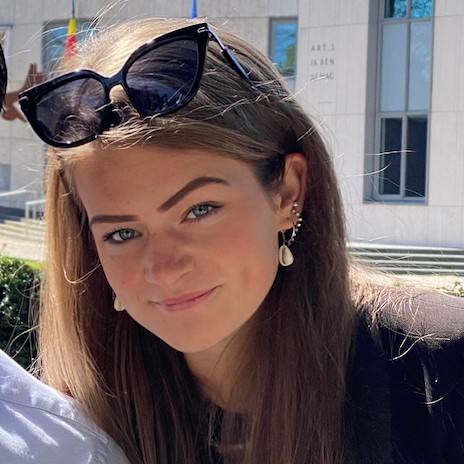
What do you see as the biggest challenge facing the leisure sector?
I think the biggest challenge is going to be how we all organise leisure in a sustainable way. The sector has a significant environmental impact, ranging from transport emissions to waste generation. Reducing the environmental footprint and promoting sustainable practices, such as energy efficiency, waste management and use of renewable resources, is essential, yet far from all organisations seem truly aware of this. Greenwashing is also a real problem.
What future role in the leisure field do you see as contributing to the solution?
In the future, I see an important role for myself as a sustainability manager in the leisure field. In which I will be responsible for developing and implementing sustainability strategies within the leisure sector. I like the challenge of working with companies, organisations and government agencies to actually promote sustainability practices and reduce environmental impacts. And to do so in a fun and interactive way.
Who are you and what specialisation do you study? Why did you choose Leisure & Event Management?
I am Tommaso Dal Maso, currently a student specialising in Urban Life & Placemaking at Breda University of Applied Sciences. I chose Leisure & Events to jump into a new industry that is often overlooked in my home country, Italy. It attracted me for the ample opportunities it offers and the unique satisfaction it gives back.
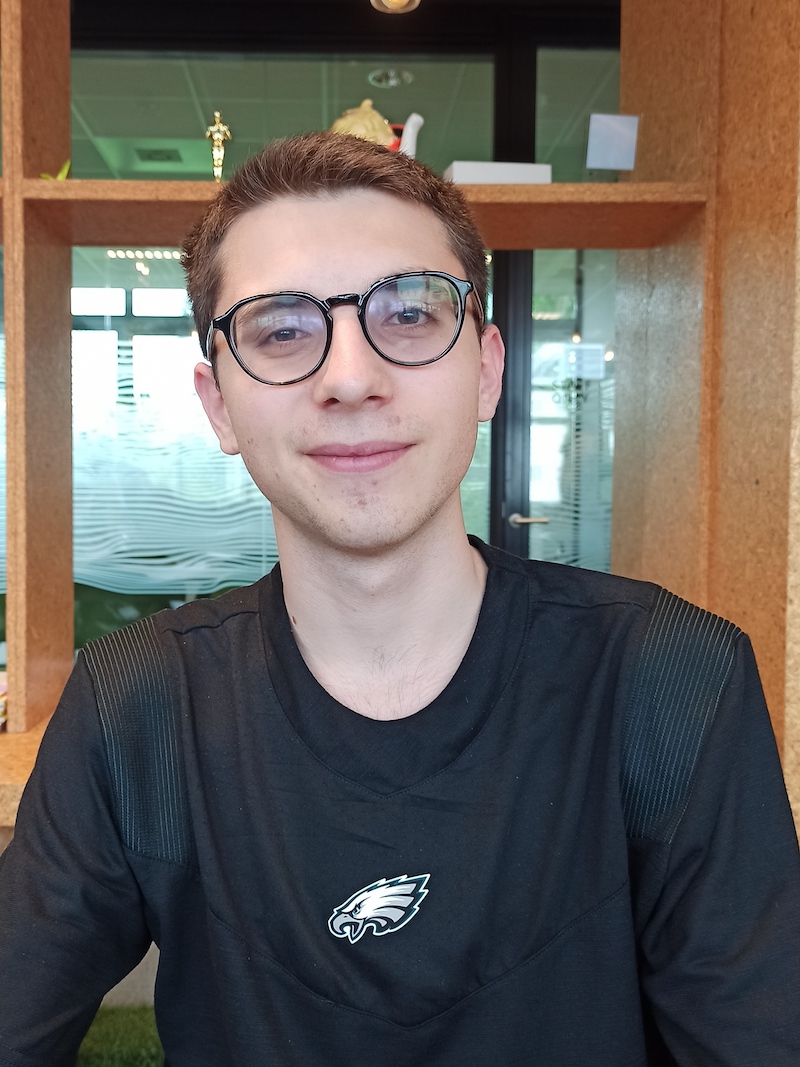
What do you see as the biggest challenge facing the leisure sector?
When I look at the industry I will soon be immersed in, I believe the biggest challenge will be to stand out in what often becomes a saturated market. While free time has increased in people’s lives, so has the leisure offer. It is urgent for the industry to develop new strategies to remain relevant in a fast-changing scenario that offers buyers a multitude of opportunities.
What role in the leisure field do you see for yourself in the future to contribute to the solution?
As a future leisure placemaker, my strategy would be to focus on local urban life and events on a small scale. My desire for a career in area development, working on creating and developing urban clusters and hotspots, can help me to achieve this by reconnecting leisure to one's identity. After all, these developments would add to the market a co-creative, multifunctional space which can be used for a range of leisure purposes and differentiate it from the global offer.































































